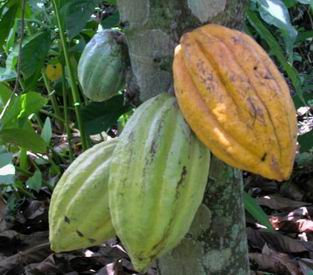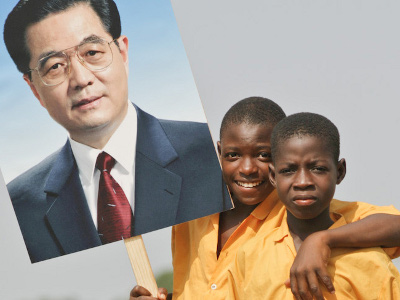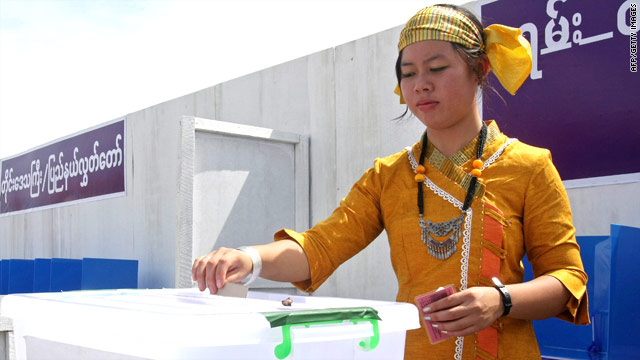
Genius
A while back I wrote about conditional cash transfers, which are the next biggest thing in development, in a post called “Where’s My Money, Fool,” titled so as an homage to the curler-wearing drug dealer Big Worm in the movie “Friday.” The most successful example of a good CCT program is Bolsa Familia, a government program in Brazil which has helped to increase incomes for poor families by 7 times as much as incomes for the rich (albeit, off a lower baseline). Brazil has seen its poverty level drop faster than Snooki inside a plastic Zorb-like ball in the Jersey Shore on New Years Eve. Specifically, the number of people living in poverty has dropped from 22% to 7% over the last decade.
The theory behind conditional cash transfers is simple. The government pays poor families for meeting certain requirements. Attendance in school and maintaining standards of healthcare are rewarded with monthly payments. As long as the family achieves the targets of the program, they are eligible for a payout. The outcome is two-fold. First, the family gets immediate relief in the form of cash payments from the government, which can be put toward food and education. Second, the underlying conditions that cause the unbreakable cycle of poverty to unbroken – lack of education due to the demands of meeting financial needs for the household – are addressed, as financial incentives eliminate the need to pull kids from school to help their parents earn income for the family. An explanation from the New York Times:
The program fights poverty in two ways. One is straightforward: it gives money to the poor. This works. And no, the money tends not to be stolen or diverted to the better-off. Brazil and Mexico have been very successful at including only the poor. In both countries it has reduced poverty, especially extreme poverty, and has begun to close the inequality gap.
The idea’s other purpose — to give children more education and better health — is longer term and harder to measure. But measured it is — Oportunidades is probably the most-studied social program on the planet. The program has an evaluation unit and publishes all data. There have also been hundreds of studies by independent academics. The research indicates that conditional cash transfer programs in Mexico and Brazil do keep people healthier, and keep kids in school.


 The big news in West Africa (and the rest of the world) is the election crisis in Cote D’Ivoire, the next-door neighbor of Ghana. I have talked to a lot of people about what’s happening and have tried to learn as much as I can about the issue. Basically, Cote D’Ivoire recently held a presidential election. The incumbent, Laurent Gbagbo, is a former history professor who took became president in 2000 in a contested election. Despite losing the most recent election to Alassaine Ouattara, a technocrat and economist from the predominantly Muslim north, Gbagbo is refusing to step down. Both men have been sworn in as president, though Ouattara is holding court in a hotel surrounded by 700 UN peacekeepers. Meanwhile, the entire world has condemned Gbagbo and called for him to step down. Gbagbo, the consummate “
The big news in West Africa (and the rest of the world) is the election crisis in Cote D’Ivoire, the next-door neighbor of Ghana. I have talked to a lot of people about what’s happening and have tried to learn as much as I can about the issue. Basically, Cote D’Ivoire recently held a presidential election. The incumbent, Laurent Gbagbo, is a former history professor who took became president in 2000 in a contested election. Despite losing the most recent election to Alassaine Ouattara, a technocrat and economist from the predominantly Muslim north, Gbagbo is refusing to step down. Both men have been sworn in as president, though Ouattara is holding court in a hotel surrounded by 700 UN peacekeepers. Meanwhile, the entire world has condemned Gbagbo and called for him to step down. Gbagbo, the consummate “
 The big news in this part of the world (West Africa) is the recent democratic election in Cote D’Ivoire, which saw the anointing of not one but two presidents. The incumbent president, who has led the country for 10 years and is constitutionally barred from seeking a third term in office, is refusing to step down after a decisive 54-46 loss to Alassane Ouattara, an economist and technocrat who also happens to be both a Muslim and a leader of the rebel groups in the north. The international community has unanimously rallied behind Ouattara and called for Gbagbo to step aside. The World Bank has suspended aid to the country, and Ouattara has called for the Central Bank to stop releasing money as a way to “starve the beast,” and turn hungry soldiers against the incumbent president. Unfortunately, with 173 people killed so far in the post-election violence, analysts are
The big news in this part of the world (West Africa) is the recent democratic election in Cote D’Ivoire, which saw the anointing of not one but two presidents. The incumbent president, who has led the country for 10 years and is constitutionally barred from seeking a third term in office, is refusing to step down after a decisive 54-46 loss to Alassane Ouattara, an economist and technocrat who also happens to be both a Muslim and a leader of the rebel groups in the north. The international community has unanimously rallied behind Ouattara and called for Gbagbo to step aside. The World Bank has suspended aid to the country, and Ouattara has called for the Central Bank to stop releasing money as a way to “starve the beast,” and turn hungry soldiers against the incumbent president. Unfortunately, with 173 people killed so far in the post-election violence, analysts are 
 The
The  I am still uncertain on where I stand regarding Wikileaks, but the most interesting releases so far have been the diplomatic cables, which are basically individual case studies in geopolitical dynamics. The ones regarding Africa policy have been particularly fascinating. Take
I am still uncertain on where I stand regarding Wikileaks, but the most interesting releases so far have been the diplomatic cables, which are basically individual case studies in geopolitical dynamics. The ones regarding Africa policy have been particularly fascinating. Take  Two World Bank economists
Two World Bank economists 

 Today, the people of Myanmar for the first time in twenty years will elect a new government. Actually, they will simply participate in a rigged election process that will legitimize the repressive military regime that has controlled the country by force for the past half-century. Under pressure from the West and perhaps craving a bizarro sense of legitimacy, the military is holding elections for the first time in twenty years, yet it has effectively guaranteed that the country will remain under its control. No matter what, the military will maintain 25% of the seats in parliament and will control three key cabinet posts (defense, interior, and border). The two main political parties are offshoots of the military. And the ethnic regions in the east and north will not even be given the chance to vote, as it is “too dangerous” to man polling stations in these regions. No foreign journalists or elections monitors will be allowed in the country and the flow of information has been stifled as the Internet is all but crippled. Not exactly ideal conditions for creating a fair and truly participatory democracy.
Today, the people of Myanmar for the first time in twenty years will elect a new government. Actually, they will simply participate in a rigged election process that will legitimize the repressive military regime that has controlled the country by force for the past half-century. Under pressure from the West and perhaps craving a bizarro sense of legitimacy, the military is holding elections for the first time in twenty years, yet it has effectively guaranteed that the country will remain under its control. No matter what, the military will maintain 25% of the seats in parliament and will control three key cabinet posts (defense, interior, and border). The two main political parties are offshoots of the military. And the ethnic regions in the east and north will not even be given the chance to vote, as it is “too dangerous” to man polling stations in these regions. No foreign journalists or elections monitors will be allowed in the country and the flow of information has been stifled as the Internet is all but crippled. Not exactly ideal conditions for creating a fair and truly participatory democracy.

